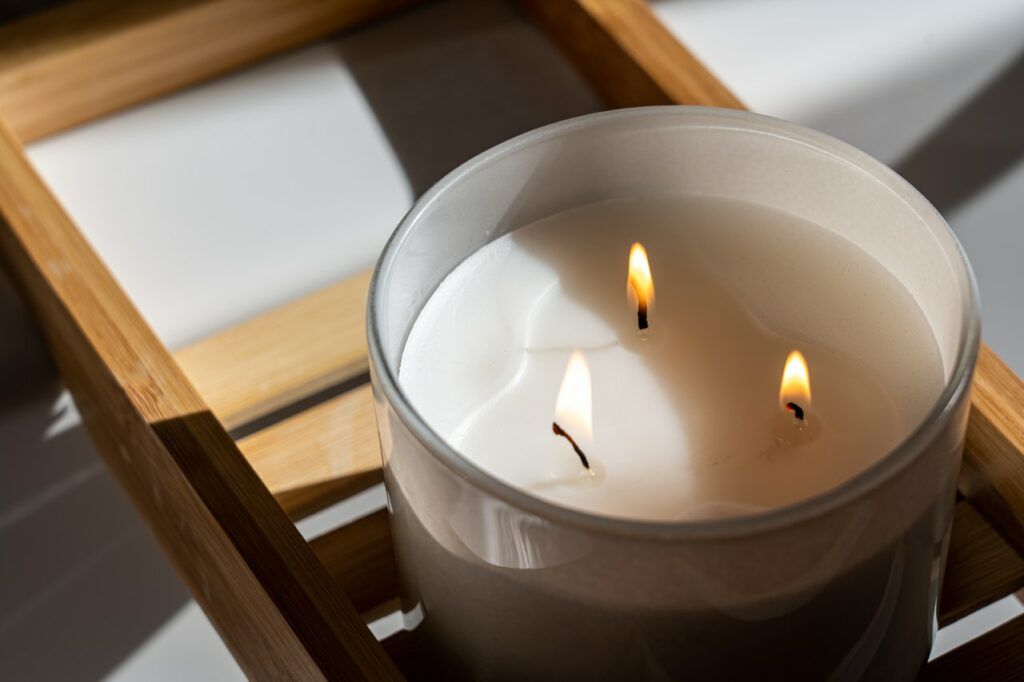You can’t smell or taste. Usually a cold or seasonal allergies are to blame. A week or two, and things are back to normal. And even THAT feels like a long time. But sometimes, as I’ve recently experienced, sensory loss drags on for months — especially if the virus you’ve caught is COVID-19. The emotional fallout is significant. How DO you survive without these two vital senses?

When your food tastes like cardboard and the coffee like hot water, disappointment is inevitable. The loss of smell and taste is far from trivial. Senses foster connection with the world around you — they make mindfulness possible. When two senses are missing, the color of life begins to fade. You might feel detached or empty. As this predicament persists, sadness and grief settle in.
This was my experience. I’ve compiled the following list of tips — nuggets of wisdom which have sustained my emotional health. I wish you this same comfort, courage, and God’s presence as you persevere.
ALI’S TIPS FOR EMOTIONAL HEALTH — WHEN YOU CAN’T SMELL OR TASTE:
1. Give yourself permission to grieve.

Be gracious to yourself. Whatever emotions bubble up, don’t belittle them. Even if this loss is temporary, the suffering you’re experiencing is significant.
Sustained sensory deprivation feels devastating, but thankfully its permanence can’t be predicted. Each day you wake up could be the day you finally smell the coffee!
Or not. Be sure to manage your expectations. Have hope that taste and smell will return — sooner rather than later — but don’t live for this. You must learn to cope in the meantime.
2. Invite God into your suffering.

Begin to practice the discipline of stillness. Mindless distraction won’t help you move through this valley of loss.
And who meets you in the stillness and solitude? God. Silence is God’s second language. His Word, the first.
When’s the last time you sat with Him — without thoughts spinning, and minus the agenda?
Do it now.
There’s no time like the present. So:
- Bookmark this article,
- turn off your computer,
- find a place to sit comfortably, and
- set your alarm for ten minutes.
Then humble your heart and simply BE with God.
He is enough.
Did you know that Almighty God meets you in your pain? Don’t succumb to bitterness. Be willing to receive what He offers. God may not give an answer for your troubles, but what He does give is enough. What He gives is more of Himself.
Don’t miss the opportunity to meet God in this valley. You will not leave unchanged.
3. Join a support group for people who can’t smell or taste.

The prolonged loss of taste and smell is widespread, thanks to COVID-19. Interestingly enough, this seems more common in milder cases (as was my experience): a manageable illness, but prolonged sensory deprivation.
Although my cold-like symptoms vanished three and a half months ago, smell and taste have yet to recover.
Greater awareness means a deeper sense of loss.
This deprivation is tough on anybody, but it’s greater for those with heightened sensory awareness. As a Highly Sensitive Person — used to noticing sensory stimuli that others miss — my hearing, taste, touch, smell and sight are acute. I hear detailed conversations in a crowded room, notice a wide assortment of subtle smells, enjoy enhanced physical sensation, greater emotional awareness of color, and a deep love for food and flavor! If you share these, or similar qualities, you too may be an HSP.
Ali’s experience.
With the onset of COVID-19, at first I couldn’t taste or smell anything. I noticed sweet or salty, but without subtlety. There was no flavor dimension!
This was pretty awful.?
After about a month, flavor began its gradual return, along with a few fragrances. That said, recent improvement has been negligible. Though coffee now smells and tastes like coffee, and chocolate (thank God!) like chocolate, I realized just the other day that I can’t smell or taste dill. It’s one of my favorite herbs!
The saddest truth of all is I’ve yet to enjoy the smell of rain. This is literally my favorite smell. Things are improving slowly, and I’m quite hopeful that this will return. Meanwhile, I do grieve the loss.
Stay connected.
Do you share any of my experiences or thoughts? Then joining an online support group could help you. Facebook has a great one here: Covid-19 Smell and Taste Loss.
For scientific answers to your smell and taste-loss questions, I highly recommend visiting MIT’s COVID-19 site, which addresses queries like: When Will My Smell and Taste Return?
4. Give thanks for what you DO have!

You know that giving thanks is a spiritual practice, right? Gratitude doesn’t come easily for us humans. It’s our fallen nature to fixate on the negative. But a grateful heart is essential for spiritual health. It’s an attitude that pleases God, and the only right and reasonable response, in light His goodness.
The big picture.
There is always something to be thankful for. Remember, you don’t see the big picture. God does.
Do you love and honor Him? Then believe this:
… we know that in all things God works for the good of those who love Him, who have been called according to His purpose. — Romans 8:28
The joy of journaling.
Looking to foster this attitude of gratitude?
Start with a pen and paper, and begin writing whatever thankful thoughts come to mind. It’s amazing how quickly you can forget God’s blessings when they aren’t recorded. On the other hand, re-reading tales of His goodness and mercy helps put a wandering heart back on track. Make it your plan to reflect on God’s faithfulness often.
Celebrate the little things.

Little milestones are just as significant as big ones. Scripture admonishes us not to despise the day of small things (Zechariah 4:10).
For example, I’ll never forget how delighted I was to taste a grape tomato — finally! ?? It was cut in half, kissed with olive oil, sprinkled with salt and pepper, and the very first thing I could truly taste — after a month of nothing. What a treat! This definitely went in my thanksgiving journal.
6. Pamper your other senses.

Add some color and light.
So, your nose can’t fully appreciate aromatherapy right now. Try adding visual interest to your Holy Yoga or meditation time. Something as simple as a flickering candle (the real kind) brings depth to any practice. Fire’s organic movement is beyond prediction, and its randomness helps keep your focus.
Or, try something fun and whimsical like color journaling — simply moving color around on paper (inspired by a favorite quote or Bible verse).
Enjoy a massage!
Treat yourself! I absolutely adore massages and Massage Envy has a membership plan that’s very reasonable. If you’re not into committing, then splurge and just go once. Your sense of touch will thank you.

Enhance this relaxing experience and connect with your breath during the massage. Notice what your body is feeling.
Listen to nature.
If weather allows, take a nature hike and practice mindful awareness. Observe the play of light and shadow among the trees. Notice nuanced colors. With your eyes closed, caress the bark, feeling its varied textures.
You may not be able to smell the rain or the pine needles, but how does the damp earth sound beneath your feet? Are the birds singing? Tune into your sense of hearing. You might even want to write these observations in a mindfulness journal.
7. Be patient with your body.
Wrap this all up with patience — for yourself! It’s common these days to want instant results, but restoring those taste buds to their former glory takes time. According to statistics, most people regain their ability to smell and taste — but don’t get fidgety. Weeks or months may pass. Now’s as a good a time as any to embrace the spiritual discipline of waiting.
…………………………………………….
What’s your COVID-19 story? Did you lose your senses of smell and taste? How did you cope? As always, I treasure your comments below. Blessings, Ali ?
